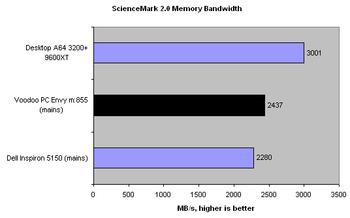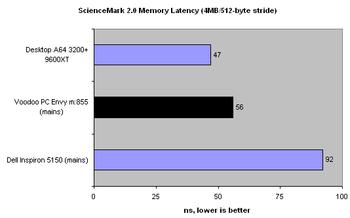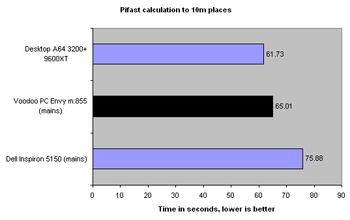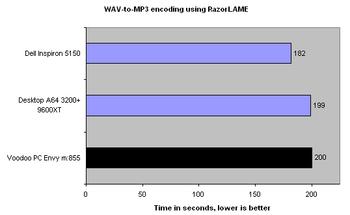ScienceMark 2.0 and Pifast

Voodoo PC's decision to run with PC2700 memory shows up in ScienceMark 2.0's memory analysis. Had it used the commercially available PC3200 SODIMMs instead, we reckon the figure would just be shy of the 3GB/s barrier. The desktop's low-latency memory (2-2-2-6) will always have a performance edge. We're adamant that such SODIMMs will never see the light of day.

This graph can be explained away in the much the same fashion. 2.5-3-3-7 latencies cannot match our desktop Corsair's XMS3500C2 settings, and we wouldn't expect them to. Even so, the Envy m:855 has an Intel-beating memory latency. Dell's Inspiron 5150 model uses a single-channel chipset that has both low comparative bandwidth and high latency.

Consideration of the above factors makes the Pifast result perfectly understandable. The Envy m:855 doesn't have as much bandwidth or as low a memory latency as a tuned desktop equivalent. 65s for this constant calculator is still a fine, fine time, even more when one considers that it's produced by a portable laptop. Desktop replacement?, surely.

Memory latency and bandwidth matters less in a computational activity such as WAV encoding. Both the Voodoo PC laptop and desktop comparison PC share a common processor, so the result is entirely in line with expectations. Dell's use of an Intel Pentium 4 3.06GHz processor manifests itself by producing the fastest time of our trio.


